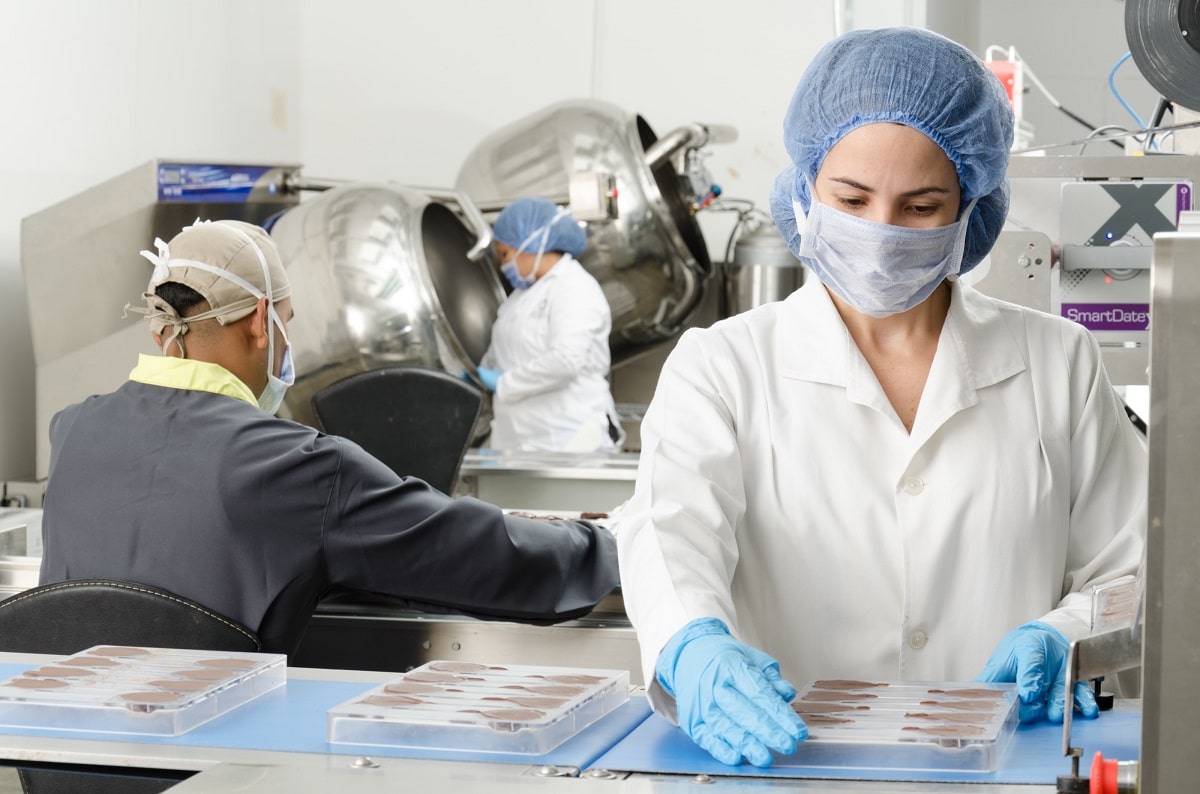
What Is NHS Scientist Training Programme And How to Prepare for It?
The NHS Scientist Training Programme offers qualified science graduates with a passion for the public sector a unique opportunity to advance their training and education, placing them on the path to a senior role in the NHS.
The programme, which takes three years to complete, includes a fully-funded part-time Master’s degree and on-the-job training where graduates learn what it takes to succeed in the National Health Service.
The NHS vets its candidates thoroughly before they are offered a place in the programme, and completing the Situational Judgement Test is an integral part of the process.
How can you score well on the Situational Judgement Test? What does this aptitude test involve and should you prepare?
This guide covers the basics that candidates need to be familiar with to ace the Situational Judgement Test, and get into the NHS Scientist Training Programme in 2023.
Table of Contents
What Is The NHS Scientist Training Programme?
The NHS Scientist Training Programme, or STP, is a three-year graduate-entry programme. Accepted candidates are employed by the NHS for the duration of the programme and receive a competitive salary. In addition, they attend a fully-funded part-time Master’s degree and gain work-based training and experience.
The programme offers graduates with degrees in scientific fields a unique opportunity to develop their skills and experience.
After graduating from the NHS Scientist Training Programme, trainee scientists have the chance to:
- Become a registered clinical scientist with the Health and Care Professions Council.
- Apply for a permanent role as a clinical scientist with the National Health Service.
There is no better way to kick-start your career in the NHS! Successful graduates find themselves on the path to a rewarding life-long career in the NHS, including in senior roles. It is no surprise, then, that the programme is very competitive.
What Are The Entry Requirements For The NHS Scientist Training Programme?
Graduates can apply for the NHS Scientist Training Programme if they meet the entry requirements.
Applicants need:
- A 1st or 2:1 in an undergraduate Honours degree or an integrated Master’s degree in an applied science field
- Research experience is highly desired but not required
The NHS Scientist Training Programme offers nine specialisms, and candidates may only apply for one:
- Blood sciences
- Cardiovascular, respiratory, and sleep sciences
- Cellular sciences
- Clinical engineering
- Gastrointestinal physiology and urodynamic sciences
- Medical physics
- Microbiology
- Neurosensory sciences
- Reconstructive sciences
What Scientific Skillset Do NHS Scientist Training Programme Applicants Need to Demonstrate?
Every candidate is as qualified in their field as you are. You’ll have to demonstrate that you have extensive experience and unique skills.
The NHS will look for candidates with the following skillsets:
- A background in patient care
- Sound clinical judgement and a strong ability to analyse medical literature
- Abilities related to quality control and management
- An ability to follow Standard Operating Procedures
- Proficiency in using up-to-date medical equipment
- Your ability to extrapolate your specialism to a general care setting
- IT proficiency
- A demonstrated capacity for continued professional development
The NHS also looks for soft skills, including active listening and interpersonal communication.
The Situational Judgement Test for candidates applying for the NHS Scientist Training Programme is how the NHS assesses which applicants have all these skills.
What Is the NHS Scientist Training Programme Situational Judgement Test?
Situational Judgement Tests are aptitude tests that assess how well candidates fit into an organisation’s competency framework. These tests measure how proactive applicants are, how well they perform in problem-solving tasks, and how strong their knowledge is.
Many employers, particularly large public-sector employers, now routinely administer Situational Judgement Tests during the hiring process. These tests present candidates with scenarios and challenges they may face in the workplace. The scenarios Situational Judgement Tests cover are tailored to the job or training programme you apply for.
NHS Scientist Training Programme applicants need to demonstrate leadership skills, logical and critical thinking, and appropriate behaviour in realistic workplace scenarios.
Only applicants who score above average make it to the next stage of the hiring process. The NHS Scientist Training Programme is one of the most competitive programmes the NHS runs, and your competition is just as intelligent and qualified as you.
Preparing for the psychometric tests you must pass during the process is key, and Job Test Prep can help you get a head start.
What Is the Format of the NHS Scientist Training Programme Situational Judgement Test?
This aptitude test measures how NHS STP candidates would realistically perform within the programme if they were offered a position. Each question simulates a problem you may have in your future work.
The Situational Judgement Test NHS STP candidates completely contains 25 realistic scenarios — meaning all the situations you are judged on are similar to challenges you may encounter in your work and training with the NHS Scientist Training Programme if selected.
Each scenario is around a paragraph in length, and candidates have to pay close attention to detail as they process the scenario.
The Situational Judgement Test then lists various possible responses to the scenario in question. Candidates have to rate how appropriate this action would be while working in a trainee scientist role, choosing from five different options.
For example, candidates may read about a trainee scientist who has concerns about a colleague’s functioning on the job. The Situational Judgement Test might ask how appropriate it would be to attempt to resolve the problem directly with the colleague. You may then be asked how appropriate it would be to discuss the situation with a senior officer.
Remember that the Situational Judgement Test doesn’t just evaluate how competent you are or how sound your judgment is. When you apply for the NHS Scientist Training Programme, assessors want to know whether you are a good fit for the programme and the NHS at large. That means demonstrating that you are a team player who can work within the administrative structure of the NHS.
Many of the scenarios the NHS STP Situational Judgement Test offers seem to have obvious answers at first glance. However, if you want to ace the test, you will need to look deeper.
Job Test Prep’s NHS Scientist Training Programme Situational Judgement Test package ensures you are ready when the time comes.
We highly recommend you take advantage of this opportunity to boost your chances of getting into the programme.
How Long Does The NHS Scientist Training Programme Situational Judgement Test Take To Complete?
The Situational Judgement Test that candidates applying for the NHS Scientist Training Programme take lasts a total of 50 minutes.
Applicants with learning disabilities such as dyslexia can apply for a time extension. If successful, they will have 63 minutes to read the scenarios and answer the questions.
However, the testing process takes longer — 90 minutes. That is because candidates are asked to sign a non-disclosure agreement before taking the test and must complete a short survey after finishing the Situational Judgement Test.
How Do I Prepare For The NHS Scientist Training Programme Situational Judgement Test?
Your ability to score well on the Situational Judgement Test determines your odds of getting into the NHS Scientist Training Programme.
Are you passionate about pursuing a public-sector career in science? Are you determined to gain access to the full-funded part-time Master’s degree that the NHS Scientist Training Programme offers? Your entire future may depend on this one test — so of course, you won’t go in unprepared!
The best steps you can take to prepare for the Situational Judgement Test you take while applying for the NHS Scientist Training Programme include:
- Taking practice tests. Situational Judgement Tests are becoming more commonplace during the hiring process. However, candidates for the NHS STP will want to practise with tests tailored to trainee scientists. Job Test Prep offers a comprehensive package that includes full-length practice tests and a study guide.
- Familiarise yourself with the values the NHS seeks in its candidates. The Situational Judgement Test assesses how skilled candidates are and looks at their behaviour and values. The NHS wants its future scientists to fit into the organisation seamlessly. Remember that the NHS is committed to outstanding service, compassion, dignity and respect, and to improving patients’ lives.
- Give yourself time to prepare. The NHS Scientist Training Programme is exceptionally competitive. You are bound to be nervous and scared you won’t pass the test. In addition to taking practice Situational Judgement Tests, it helps to sleep well, eat well, and engage in physical exercise in the weeks prior to the test. A clear head and confident mind give you the best chance to do well!
- Understand the format. The NHS STP Situational Judgement Test is timed. You only have 50 minutes to read the scenarios and answer the questions. You will get faster and better at answering correctly if you are deeply familiar with the format.
- Make sure you have a peaceful working environment. NHS Scientist Training Programme candidates complete the Situational Judgement Test on their own computers. Ensure you have a quiet, peaceful, and distraction-free work environment ahead of time.
Is The NHS Scientist Training Programme Situational Judgement Test Hard?
The NHS STP Situational Judgement Test looks deceptively straightforward at first glance. However, candidates who are determined to score well and get into the program should look deeper. Candidates should show sound judgement and skill, but also leadership ability and values that align with the public sector.
The NHS invests a lot in the candidates it accepts into its prestigious Scientist Training Programme. Only the best get in.
What Happens If You Fail the NHS Scientist Training Programme Situational Judgement Test?
You will not get into the NHS Scientist Training Programme if you fail the Situational Judgement Test. This aptitude test is a vital part of the application process. The NHS already knows you are qualified. The Situational Judgement Test determines if you are the right fit for the programme.
You don’t just need to pass the test, but excel and score better than most other candidates.
Do You Need To Complete Any Other Aptitude Tests When Applying for the NHS Scientist Training Programme?
No. Numerical reasoning tests and logical reasoning tests used to be part of the application process. However, the NHS has replaced these tests with a single Situational Judgement Test.
Who Makes The Situational Judgement Test Used During The NHS STP Hiring Process?
The Situational Judgement Tests the NHS administers to science graduates applying for a place in the Scientist Training Programme are developed by the leading test provider Pearson VUE.
Many jobseekers take Situational Judgement Tests created by Pearson VUE, but the test you take during the NHS Scientist Training Programme application process is developed specifically for the NHS.
Where Will You Take The NHS STP Situational Judgement Test?
NHS SPT candidates who pass the initial application are invited to take the Situational Judgement Test by email. You can complete the test in the comfort of your own home in a specific time window.
The test platform does not support mobile devices. Instead, applicants must use a laptop or desktop computer with an up-to-date internet browser, and a wired ethernet connection is optimal.
Check your email for a notification often after applying for a place in the NHS Scientist Training Programme.
Keep in mind that you will have to complete the Situational Judgement Test in one sitting and make sure you are ready before you start.
A Final Word
The NHS Scientist Training Programme is prestigious and highly competitive. Talented young scientists who win a place in the STP benefit from a full salary, a fully-funded part-time Master’s degree, and on-the-job training that helps them secure their future careers.
Making it into the program is notoriously difficult — and preparing is a must if you want to be ahead of the curve.
Job Test Prep offers an extensive training course on the NHS STP Situational Judgement Test. Understanding the format and getting valuable practice gives you the best chance of scoring well.
What are you waiting for?
Sarah is an accomplished educator, researcher and author in the field of testing and assessment. She has worked with various educational institutions and organisations to develop innovative evaluation methods and enhance student learning. Sarah has published numerous articles and books on assessment and learning. Her passion for promoting equity and fairness in the education system fuels her commitment to sharing insights and best practices with educators and policymakers around the world.







